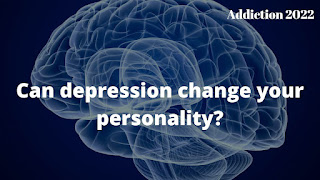Can chemotherapy cause behavior problems?
Chemo brain is a terminology used by cancer survivors to explain issues with thinking and memory that can occur during and after treating cancer. Chemo brain is also known as chemo fog, cognitive impairment caused by cancer, or cognitive dysfunction. Chemotherapy-induced cognitive impairment, also referred as chemo brain, refers to concerns including forgetfulness, mental fogginess, and decision-making problems that can arise during and after cancer treatment. Exercising and using a graphic organizer are two main things you can do to improve yourself.
Chemo brain is a term that describes problems with attention, memory, and thinking that occur as a result of cancer therapy. Chemo fog, chemotherapy-induced cognitive impairment, and cancer treatment-related cognitive impairment are some of the other names for this disease. Cognitive impairment (difficulty thinking clearly) is sometimes misunderstood as a consequence of chemotherapy. However, it can occur prior to, during, or following any cancer therapy. It is short in some persons. Others have been dealing with it for years. Chemotherapy (chemo) is the treatment of cancer cells using chemicals. Chemotherapy medications, on the other hand, can damage normal cells, resulting in both short- and long-term adverse effects. Chemotherapy damage to quickly dividing cells can result in adverse effects include low blood cell counts, nausea, diarrhoea, and hair loss. These temporary adverse effects normally fade away when therapy is completed.
While chemotherapeutic medicines have also had some success in the treatment of cancer, patients frequently experience undesirable and even devastating side effects, leading to dosage reductions or even treatment cessation. Chemotherapy adverse effects (symptoms) include I cognitive deficits such as attention, memory, and executive functioning issues; (ii) tiredness and motivational deficiency; and (iii) neuropathy. These symptoms frequently come during treatment but can persist even after chemotherapy has been discontinued, substantially reducing long-term quality of life. Although little is known about the underlying processes that lead to the development of behavioural toxicities, neuroinflammation is commonly thought to be one of the key causes of chemotherapy-induced symptoms. In this paper, we examine what is known about the involvement of neuroinflammation in systemic therapy symptoms. According to the research, neuroinflammation is unlikely to be the only mechanism involved in the aetiology of chemotherapy-induced behavioural effects.
.png)

.png)
Comments
Post a Comment